The year of Anton Pann’s birth has remained, until today, a mystery, most literary historians placing it somewhere between 1794 and 1798. It is certain that Antonie was born into the family of a boilermaker, Pantelimon Petrov, and a Greek woman, Tomaida. It was assumed that the father of the future author of the music of Romania’s national anthem would have been a Romanian who earned his living from the trade of brass objects. Anyway, Anton Pann is not currently claimed by the Bulgarians, nor by the Greeks, or the Turks. In fact, the family quickly left the “City of Outlaws” (Sliven – so named for the men who rebelled in the 19th century against the rule of the Ottoman Turks), the premature death of the head of the family causing Tomaida, a widow with three boys, to emigrate precisely to Bessarabia, to Chisinau.
Byzantine, Turkish and Western Melos
With his older brothers enlisted in the army, gone to war and disappeared, little Antonie became, at only 10 years old, the man of the house. He sang in the choir of several churches, an occupation that “caught” him, in adolescence, already arrived in Dâmbovița, in Bucharest, being highly sought after for his skills as an instrumentalist, singer and teacher of psaltery. “Anton Pann – reveals the literary critic Paul Cernat – was an important reformer of psaltic church music and a prolific composer of world songs, combining, to the delight of the city audience, the Byzantine melodic with the Turkish and Western.”
Balkan par excellence
In addition: “Unheard of, still sung today in all kinds of formulas, the hits remain such as Bordeiaș, bordei, bordei, Until when I didn’t love you, etc. or the eulogies of drunkenness and lust, and the collections – led by Spitalul amorului or Cantătorul doluruli delightfully repertory the sentimental consumer poetry of the era, under the direction of a talented maneleist. Balkan by excellence, this prodigious musician-folklorist – a real man-orchestra, passionate collector of Târgove folklore, Anton Pann adapted popular books with humor and charm (Năzdrăvăniile lui Nastratin Hogea, Halima, Archirie i Anadam, Noul Erotocrit, etc.), composed musical grammars, but also calendars or star songs, he compiled collections of parables, anecdotes and fables on the most varied formulas, culminating in the versified moral narratives from the vorbei Tale (from the world gathered and back to the world given).”
Industrious typographer (self-directed)
Also here: “He was also an assiduous printer, under his own direction. We owed him, in a completely different register, the music of the future national anthem Desteaptă-te Romaniane, composed at a conspiratorial-revolutionary meeting in Brașov, in 1848, a city where the child Titu Maiorescu knew him. His unclassifiable narratives remain very special, among them A sitting in the country or Călătoria lui moş Albu – a gem. Located outside the canon of Western-type literary modernity (although Eminescu valued it a lot), parallel to the Paşoptist romanticism, this 100% Balkan and first-standing product of our popular urban culture will be revalued, in a modernist key, by the interwars Ion Barbu and G. Călinescu, its post-war share being constantly increasing. Today it has already become a brand.”
Bargain wisdom
Further: “Poet-singer, prose writer in verse and entrepreneur of urban folklore, self-taught classic capable of versifying, mocking, anything in parsimonious-moralizing narratives, like a Pan god of boisterous love affairs, tempted like St. Anthony. It was not addressed to the post-Phanariote tombaters, nor to the bonjurist elites, but to the literate market public, readers of ecclesiastical writings and popular books; through him, the traditions of the Balkan East, the bargaining wisdom of Nastratin Hogea and the carnivalesque wisdom of Păcală, repressed by the snobbery of peripheral modernization, took their revenge in a fabulous lyric posterity, with Arghezi, Marin Sorescu, Leonid Dimov, Şerban Foarță and their disciples in the foreground; and here, the fine Pepela, the clever as a proverb, can only be compared with Eminescu. Including some of the prose writers of the autochthonous Eastern Balkan vein, they remained indebted to him.”
Torn by the spoon
Last but not least: “The most important (in perspective, most influential) Romanian poet of the 19th century before Eminescu was, therefore, not some Pașoptist or neo-Anacreontic, but Anton Pantoleon Petrov, aka Anton Pann, the son of a Greek woman and of a boilermaker of uncertain ethnic origin from Sliven, south of the Danube. November 2 marks the 170th anniversary of his death from typhus (plus pneumonia). The epidemiological context meant that he could not be buried, according to the will, at the Viforâta monastery, but in Bucharest, in the courtyard of the Lucaci church; that’s right, in the presence of a large audience.”
Read on Antena3.ro
Shocking archaeological discovery: 76 children sacrificed, with their chests opened and their skulls modified. The purpose of the macabre “offering”.
The poetry of vegetables and fruits
Here is also a splendid sample of poetry of vegetables and fruits extracted from the story of “if he had no power, what more chichirez gâlceava”:
“-I swear by my conscience that I have no part of it
in this world of all my kind
And not to be happy like that mud
From my beloved brother Usturoi,
How and in condemnation to fall,
To mourn the death of my father-in-law Praz;
May the race of my horseradish be extinguished,
May worms eat him alive this very year;
To bury alive and mourn
My Radish daughters, whom I love;
Like my one son-in-law Ardei
Dust to pretend to be in every borde;
To reach my uncle Nap myself
And my aunts Beet hole to dig them,
Not even to have a part in the world in my eyes
By the grandchildren Morcovi and Partrunjei;
To wander in the meadows and across the plains
My lovely cousins Broajbe and Gulii,
And not to have any more of the Cousin Potato
If you don’t tell the truth right up front;
And the bubos Grape don’t be lied to,
May my death be of a sharp knife,
How to tear me to pieces on the spot
And fry me in pans on the fire
I pray that the Grapes be brought,
What he gossiped about me and told lies,
Ye by judgment that either I or he,
Let us choose the right to a kind;
I will now ask questions
And let the lie told to the face be given.
Hearing these vows sung,
Orders to Salada, what lies ahead,
(I say) to Marula and to Lăptuca,
That henceforth the laws are brought,
And the council assembled at once by summons,
At the head stands the Pumpkin with the big head,
The watermelon beside him to sit,
And to have servants around for guarding
On the Plains dressed in red
And on the hunted, which are brought;
Okra still, Loboda and Știrul
To be in front, to complete the line.
So these all came together,
They depicted the musty Grape,
Balance, the balance bringing the start
And what was said was right.
Thus they found Strugur guilty
And that he alone is the cause;
And the wine grape began to cry
And he demanded from him testimonies to collect,
But there are also three who love him
And to divide them alone they will come:
Melon, Peach, Apricot,
But they did not listen to these calls,
But they all condemned him as if from one mouth,
Like the decision they made in the first place.
Melons, which bias set,
It splits in two, unheard of,
Peach as well as Apricot again
Out of trouble and spite they split;
And the nettle that sits here squirming,
Wanting to get out fast, anxious,
Nettles surrounded those he touched
And from this great uproar was kindled;
But the maid was very angry in herself
With great fury he set off at once
Poor Strugur too hard to curse
And upon him call all the evils.”
Secondary material
Or shut up, or say something better than silence!
Below, and some wise instruction on speech “gathered from the world and given again to the world” from “The Story of Speech”:
About speech
Says a wise man:
Or shut up, or say something better than silence!
And
If you want to live peacefully, don’t see, don’t hear, keep quiet.
Speech also has its time,
And not to slam her when you want.
According to the Turkish proverb:
If I sioileies it becomes sioz, if I sioileies it becomes trouble,
That is:
If I say it, I will do it, if I don’t say it, I will do it.
(…)
But still
Talk in corners and round
Without circles it clogs.
Secondary material (with photo 7)
Antony’s epitaph
He moved here with grief
In the most recent year,
Which in his books
His signature is Anton Pann
Now his hand ceases,
He was always sitting on what he wrote
Whole nights no longer work
To light books to give.
Doing his duty
And the talent not burying
He made his journey
Giving birth to others.
170 years have passed since the death of Anton Pann on November 2, 2024.
“I, if I could write with the speed with which I thought, I would have left many things to the following.”, Anton Pann
“I don’t think I’m shocking by saying that this formidable Bulgarian (Anton Pantoleon Petrov, but also the Hungarian national poet Petofi Sandor was Serbo-Slovak and was actually called Petrovici!) is the best Romanian poet of the Pasoptist era.”, Paul Cernat, historian literary
“Pragmatic and specific local, without romantic fumes of western import, the fine Pepela the clever as a proverb did not interest (to their shame) the critics of the time, but it will delight modern luxury poets, from Eminescu to Ion Barbu, Leonid Dimov and Şerban Foartă.”, Paul Cernat
“I don’t think I’m shocking by saying that this formidable Bulgarian (Anton Pantoleon Petrov, but also the Hungarian national poet Petőfi Sándor was Serbo-Slovak and was actually called Petrovici!) is the best Romanian poet of the Pasoptist era.”, Paul Cernat
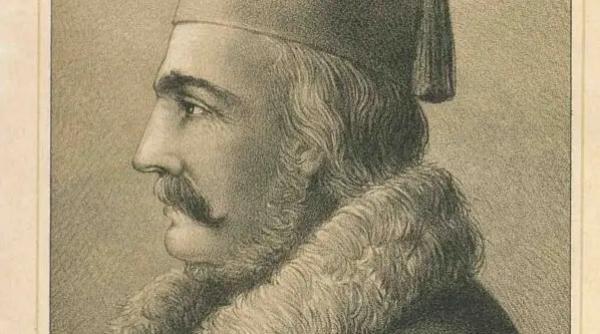
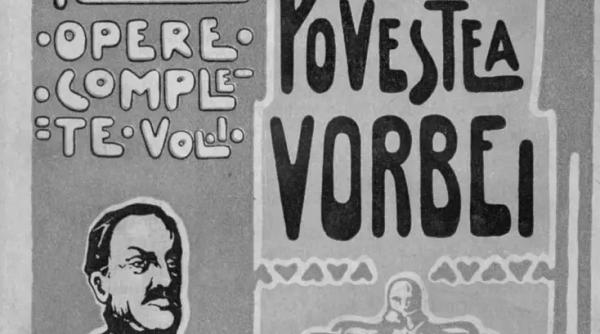
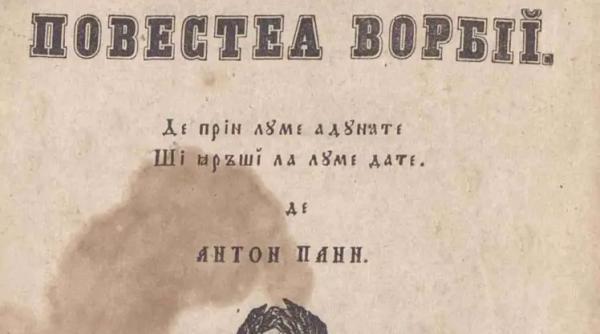
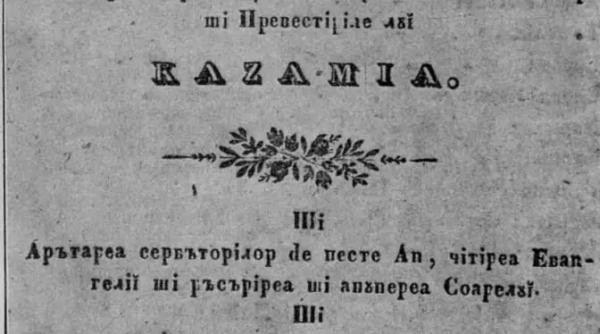
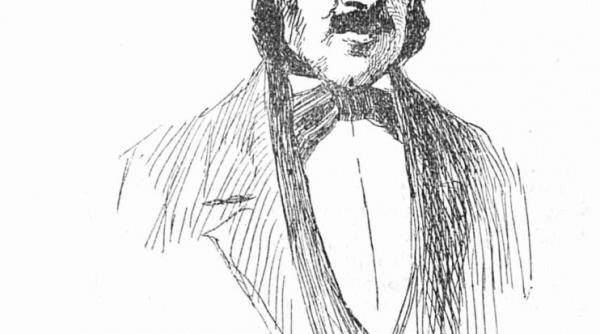 ››› See the photo gallery ‹‹‹
››› See the photo gallery ‹‹‹
Source: jurnalul.ro


